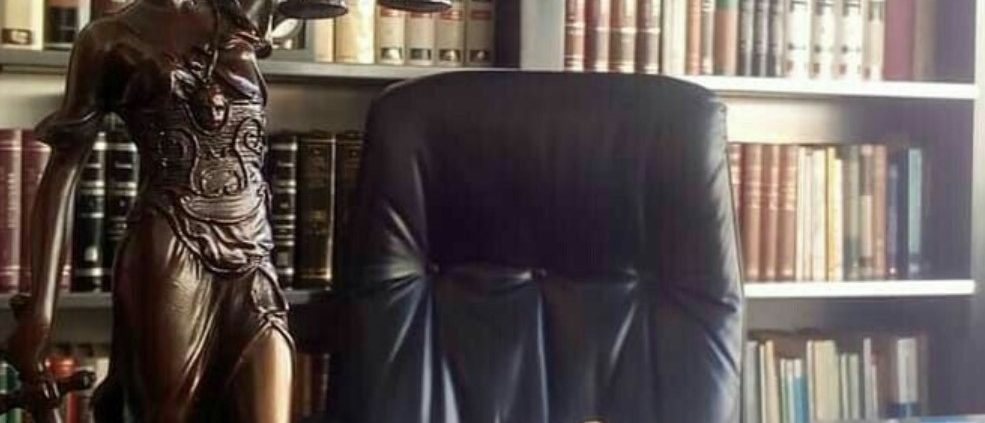Ducey signs bill requiring conviction before assets are seized
Prosecutors and law enforcement agencies will no longer be permitted to permanently seize people’s property for alleged criminal wrongdoing without actually convicting them of a crime after Gov. Doug Ducey signed a landmark bill reforming Arizona’s civil asset forfeiture laws.
By signing House Bill 2810 on Wednesday, Ducey helped property rights advocates achieve a long-term goal of overhauling Arizona’s civil asset forfeiture system. After years of unsuccessful attempts and smaller reforms, the bill passed with overwhelming bipartisan support in the 2021 legislative session.
Under Arizona’s current system, law enforcement can seize a person’s property if they believe it is connected to a crime. The property owner doesn’t need to be convicted or even charged, and in some cases, property is seized without anyone being charged with anything. Opponents of the system have spent years highlighting cases in which parents lost vehicles or cash because their adult children were dealing drugs. Much of the proceeds go to the agencies that seize the property.
People who want to recover their seized property must hire attorneys to fight the forfeiture in civil court, and the seizing agency must only meet the relatively low threshold of showing clear and convincing evidence that the property is connected to a crime.
In his signing letter on Wednesday, Ducey thanked the bill’s sponsor, Rep. Travis Grantham, R-Gilbert, and touted HB2810 as protection of property rights. He noted that the Arizona Constitution grants broader personal and property rights than its federal counterpart, and, as governor, said he has a responsibility to balance those rights against the needs of law enforcement organizations.
“Arizonans can stand strong in combating organized crime and criminal activity, without sacrificing the rights guaranteed under our Constitution for law abiding citizens,” Ducey wrote.
Ducey emphasized that law enforcement can still seize property for future forfeiture or if it’s evidence of a crime. But HB2810 ensures that seized property is genuinely connected to a crime, and gives innocent people greater ability to recover their property.
The core provision of the law requires prosecutors to secure a conviction of a person before most property can be forfeited. It also bars the Attorney General’s Office from using anti-racketeering fund money to pay salaries, and gives people more time to challenge the forfeiture of their property in court. The government also must provide notice that it intends to seize someone’s property through forfeiture. And the bill prohibits police from coercing people into relinquishing their right to their property.
The Institute for Justice, a conservative legal advocacy group that has spent years advocating for a conviction requirement, hailed Ducey’s signing of HB2810.
“Civil forfeiture threatens everyone’s property and due process rights,” said Paul Avelar, an attorney with the Institute for Justice. “The government can take your car, your home, and your life savings without ever charging you with a crime, much less convicting you. HB2810 makes important reforms to Arizona’s forfeiture laws to protect innocent property owners from government abuse.”
According to the Institute for Justice, Arizona becomes the 16th state with a conviction requirement for civil asset forfeiture, the 14th state, plus Washington, D.C., to require the government to show that someone isn’t innocent before seizing property, and only the fourth state with an anti-coercion law.
The bill faced opposition from law enforcement and prosecutorial agencies. Maricopa County Attorney Allister Adel urged Ducey to veto HB2810, telling him in an April 30 letter that the bill would undermine efforts to fight the drug cartels and human smuggling organizations that operate in border states like Arizona, and argued that civil asset forfeiture is used with judicial oversight, transparency and due process.
“This bill reflects a gross misunderstanding of the role civil asset forfeiture plays in keeping our community safe. Civil asset forfeiture is an important tool, used by law enforcement to efficiently interrupt the money supply of criminal enterprises and quickly recover property for victims of crime,” Adel wrote.
Before the bill went up for a vote in the full Senate, county attorneys from Maricopa, Pinal and Yavapai counties urged Senate President Karen Fann, R-Prescott, to limit the bill’s reach. One proposed amendment that was never agreed upon would have eliminated the proposed conviction requirement for the forfeiture of cash. However, the bill was never amended in the Senate and passed out of the chamber on a 29-1 vote.
The Institute for Justice’s most recent report on civil asset forfeiture, for the fiscal year 2019, showed that law enforcement agencies in Arizona obtained $24 million in revenue from civil asset forfeiture. Rather than large sums of cash and expensive property, most forfeiture cases in Arizona involve less than $1,000 in property, according to the institute.
Only 3% of proceeds go to community programs and donations and only 1% goes to victim restitution, while 34% is used to pay personnel at law enforcement and prosecutorial agencies, Avelar said.


![20180903_d2c5ea2e-0888-57b3-b04a-ab689f32c70c_1[1]](https://forfeitureusa.com/wp-content/uploads/2023/12/20180903_d2c5ea2e-0888-57b3-b04a-ab689f32c70c_11-180x180.jpg)
![gerado-serrano-tx-eagle-pass-DRW_5061-scaled[1]](https://forfeitureusa.com/wp-content/uploads/2023/12/gerado-serrano-tx-eagle-pass-DRW_5061-scaled1-180x180.jpg)
![cop_hand_up_000018137672XLarge[1]](https://forfeitureusa.com/wp-content/uploads/2023/12/cop_hand_up_000018137672XLarge1-180x180.jpg)




